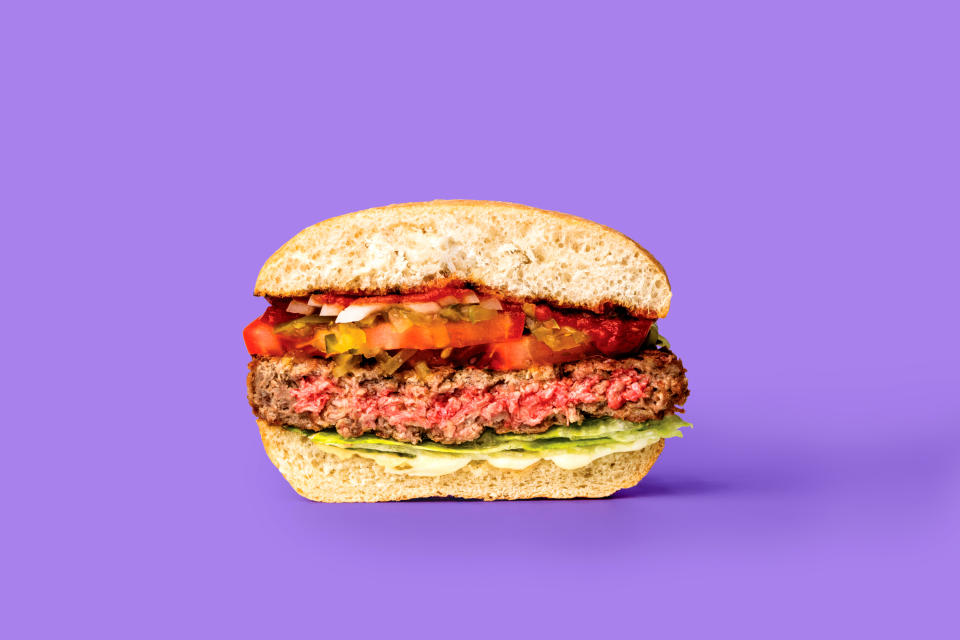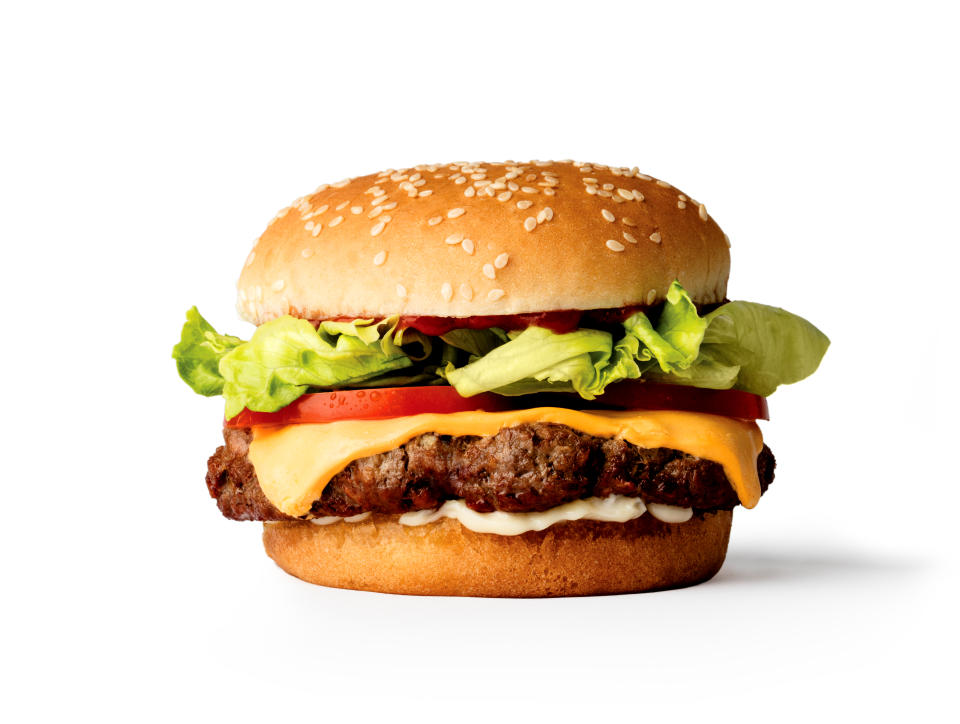Burger King to offer vegan Impossible Whopper — but how healthy is it?

News on Thursday that Burger King will soon be offering vegan Impossible Burgers on its national menu — joining at least a half dozen other national food chains jumping aboard the plant-based revolution — has prompted many to rejoice.
Starting this month on the 8th Burger King is going to have the impossible whopper available and my little vegan heart has never been so happy ☺️
— 🌙 (@moonlight_dime) August 1, 2019
THERE'S A COUNTDOWN ON THE BURGER KING WEBSITE FOR THE IMPOSSIBLE WHOPPER OMG pic.twitter.com/QOpp3RpfhI
— Vegan Mommy Blog Energy (@VeganMamaMagic) August 1, 2019
“Veganism has finally gone mainstream! This is a huge step forward,” Jasmin Singer, longtime activist and co-host of the popular animal rights-themed podcast, Our Hen House, tells Yahoo Lifestyle, of the announcement by Burger King — which follows in the footsteps of others by Dunkin Donuts (in New York City), White Castle, Little Caesars, Big Boys, TGI Friday’s, Carl’s Jr. and Cheesecake Factory, all of which now offer, at least regionally, some version of either the Impossible Burger or its chief competitor, Beyond Meat.
“Are these health foods? No,” says Singer, author of the food-focused memoir Always Too Much and Never Enough, with her next book, a vegan lifestyle guide, forthcoming. “They’re healthier than their animal-based counterpart, absolutely… But when we’re looking at health, we also need to measure it from a more holistic perspective; destruction of the environment is obviously bad for our health, and let’s not even get started on the animals’ health.”
But how does the Impossible Whopper stack up, nutrition-wise, to the meat-based version?

Comparing the nutritional content of a Whopper patty with that of an Impossible version shows them pretty equal on calories (270 vs. 240), saturated fat (8 grams for each) and protein (20 grams vs. 19 grams) — with the meat version containing more cholesterol (80 mg compared to the Impossible’s zero) and less dietary fiber (zero compared to Impossible’s 3 grams); but the vegan patty contains more sodium (230 mg compared to zero in the beef burger).
And while the meat patty is made of only cow flesh, the Impossible contains 21 ingredients, ranging soy protein concentrate and coconut oil to methylcellulose and soy leghemoglobin, an iron-containing molecule used to provide the “meaty taste.” Although it’s found in the roots of soy, Impossible Foods is created through a genetically engineered process for the “lowest achievable environmental impact.” (The ingredient was what kept the Impossible Burger out of grocery stores, and only on restaurant menus; but a recent FDA decision has changed that, and now these burgers will join the Beyond, which relies on pea protein instead of soy, in supermarket fridges.)
Still, Ginny Kisch Messina, a registered dietician known as the “Vegan RD” and author of books including Vegan for Life, tells Yahoo Lifestyle, “Creating a food from a long list of ingredients doesn’t automatically make it unhealthy. It depends on what the ingredients are. In fact, the plant-based burgers may have some slight advantages over beef. For example, both of the plant-based burgers provide small amounts of fiber and calcium, and the soy protein in the Impossible Burger may help lower cholesterol levels.”
A body of research has shown (through association and not causation) that eating more red meat leads to less-healthier outcomes. And organizations including the American Cancer Society and the American Heart Association advise reducing the consumption of various types of meat, including red and processed.
Messina says that, overall, while any nutritional benefits of the plant burgers are “minor,” and she isn’t concerned about the ingredients in either Beyond or Impossible Burgers, “both the plant-based and animal-based burgers lack many of the benefits of whole plant foods, like beans.” But people love burgers, and a lot of people eat at fast-food chains, she adds, noting, “There is no downside to having options that provide a safe, appealing, and convenient alternative to meat that is better for the environment and for animal welfare.”
Singer adds that their rise in popularity feels inevitable. “We have to come up with much better ways to feed people delicious food that they love and that doesn’t cause harm,” she says. “It’s the logical result of what happens when the market produces a product that people really love. This is a product the world’s been waiting for — regardless of whether we knew it or not.”
Read more from Yahoo Lifestyle:
Soccer star Alex Morgan is a vegan — here’s why plant-based eating is a growing trend for athletes
Natalie Portman explains how her veganism relates to women’s issues: ‘We’re exploiting female bodies’
160,000 people sign petition calling for McDonald’s to launch a vegan burger
Follow us on Instagram, Facebook and Twitter for nonstop inspiration delivered fresh to your feed, every day.

 Yahoo News
Yahoo News 
